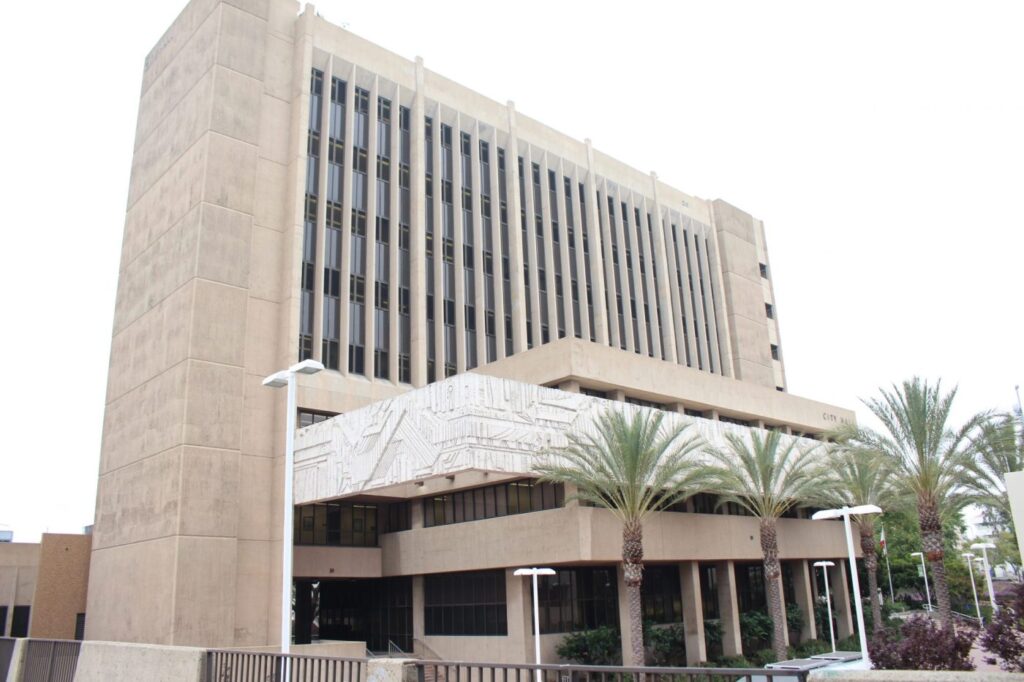
In 1968, President Lyndon Johnson signed the Fair Housing Act extending protections in housing to everyone regardless of race, religion, national origin or sex.
The Department of Housing and Urban Development created standards for how many people should be able to occupy a rental unit.
The 1974 Consumer Privacy Act was passed to protect the privacy rights of consumers when it comes to how data is collected and used.
California’s 2018 Consumer Privacy Protections were established to prevent the misuse of personal data.
Despite this, the city of Santa Ana has put the rights of tenants at risk.
Rent registries are not new, but typically they are limited to information about rent levels and increases associated with each unit being provided by the rental housing provider. Santa Ana’s registry, however, requires disclosing much more intrusive information. Under the penalty of perjury, rental property owners and operators must disclose to the city specific details about each unit – and their tenants.
The city of Santa Ana is mandating submission of all documents that a rental property owner or operator provides to their tenant as part of their private business transactions – including the actual lease agreement, addenda, notices, and any other documents the city deems necessary.
The city also wants to know the names, phone numbers, email addresses, and other contact information for each resident in each rental unit – regardless of whether they are on the lease agreement.
Possibly, most shocking of all, the city of Santa Ana is also requiring rental property owners or operators to disclose – again, under penalty of perjury – the preferred language of the individual(s) in each unit.
In other words, the city wants to create a registry that asks tenants and property owners to provide evidence of potential violations:
The Fair Housing Act by asking for information related to the tenant’s race, ethnicity, or nationality.
The Housing and Urban Development standards by collecting information on every tenant or occupant.
The Consumer Privacy Act by providing private contracts between property owners/operators and tenants.
The California Consumer Privacy Protection Act by providing personally identifying information.As problematic as this policy is, considering how it could be used – or abused – is even more troubling.
The Guardian exposed in 2022 how interagency sharing of data between local, state, and federal jurisdictions is one of the key ways that law enforcement tracks their cases – agencies that include U.S. Immigration and Customs Enforcement (ICE).
Use of the Patriot Act has long been a concern of the American Civil Liberties Union – and so has the expansive use of data collection such as this.
More poignantly, in 2021 the Harvard International Review examined the use of AI and public and private databases as a method for identifying and tracking down suspects. The city of Santa Ana is feeding right into this practice with its rent registry.
Governing, the journal for municipal government, covered this issue extensively as far back as 2017, identifying the liability that municipalities face when government data breaches occur. These liabilities quickly run into the millions of dollars, not to mention the impact of individuals being exposed to identity theft.
The city of Santa Ana is assuming a great deal of financial liability if its rent registry database is breached and/or its contents exposed or shared inappropriately. American Express, United Airlines, Amazon, Microsoft, Bank of America and countless other major and minor corporations have all had to pay millions upon millions of dollars in settlements when their data was exposed – and consumers were hurt.
Related Articles
Ron Paul: Israel must heed lessons of America’s response to Sept. 11 attacks
The truth about Proposition 47 and smash-and-grab robberies
Government undermines health care quality, while choice promotes it
How liberal California compares to Florida, Texas on social media regulation
Universities must stand against extremism
You may also recall the Orange County Transportation Authority and the Transportation Corridor Agency paying out approximately $200 million in a 2021 class action lawsuit settlement stemming from their improper sharing of customer’s personal information with third parties, including debt collectors and other public agencies.
What is worse is that if you go back and read or watch the testimony given by members of the public at the time the city’s rental stabilization and just cause eviction ordinances were being considered, you will hear these very same concerns being raised.
Santa Ana tenants, housing providers, and taxpayers deserve better from their government. Tenants have a right to have their private information protected. Rental property owners and operators should not be compelled to provide their or their tenants’ personal data to the city. And taxpaying residents and businesses should not be on the hook for hefty penalties, fines, and financial settlements resulting from poorly prepared policies.
Chip Ahlswede is Vice President of External Affairs at the Apartment Association of Orange County.
